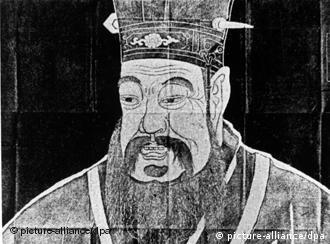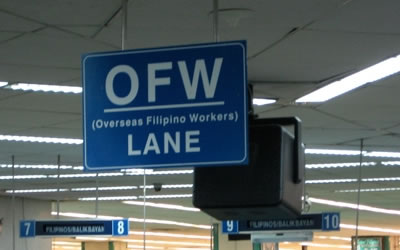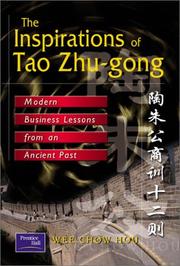| Why are Chinese entrepreneurs successful? I am posting a column I had written in the Philippine Star newspaper over two years ago. (Below is an image of the early overseas Chinese traders of the Qing dynasty in Southeast Asia, who used the ababus for their quick and efficient computations)  Bull Market, Bull Sheet By Wilson Lee Flores The Philippine Star February 22, 2010 |

The beginnings of Philippine capitalism: A Chinese trader sells his wares.
The important thing is not being afraid to take a chance. Remember, the greatest failure is to not try. Once you find something you love to do, be the best at doing it. — Debbi Fields, founder of Mrs. Fields Cookies
Nobody talks about entrepreneurship as survival, but that’s exactly what it is and what nurtures creative thinking. Running that first shop taught me business is not financial science; it’s about trading: buying and selling. — Anita Roddick, founder of The Body Shop
One of the most dynamic and gutsiest ladies I have ever met was my neighbor here in The Philippine STAR’s Business Life section, Josefina “Josie” Trinidad Lichauco. She was an honors graduate of the University of the Philippines (UP) Law School with a master’s degree from Yale University. She was outspoken in her crusade against the excessive political corruption in Philippine society.
During social occasions when I would see her, she would always greet me and chat, telling me that we should one time talk at length about politics, economics and art over lunch or dinner. The last time that she talked to me was when she called via cell phone, and she told me she’d like to invite me to see the oil paintings bequeathed to her by her late dad, stockbroker and art collector Don Anselmo Trinidad, at her condo in The Fort. She knew that I admire art.
I hope our leaders competing in the May elections will emulate Josie Lichauco’s intelligence, guts, idealism, devotion to family, sense of humor and integrity.
* * *
(Chinese characters for "business" pronounced as "seng yi" in Mandarin)
On Feb. 13 on the eve of Chinese Lunar New Year and Valentine’s Day, DZMM radio station’s Teleradyo hosts Carl Balita and Chinkee Tan invited me for an interview about Chinese entrepreneurial success secrets and practices. Here are some of the interesting questions from the hosts and their listeners’ phoned-in queries, I have also added some questions e-mailed by Philippine STAR readers:
• Why are many Chinese entrepreneurs seemingly masungit (unfriendly)?
I think it is not so much being unfriendly as it is being too serious. I believe ethnic Chinese people are like the Germans of Europe or the Jews of New York, who are by nature too serious in disposition, and so striking other people as “unfriendly.”
In stark contrast, non-Chinese Filipinos of Malay heritage are generally happier in disposition and more easygoing. In fact, compared to other island-nation peoples of Southeast Asia, the Philippines has been surveyed to be among “the happiest people” in the region. In Europe, Germans in general are considered “unfriendly” but actually are just more serious than the more easygoing Greeks or Italians of southern Europe.
(Jewish Traders and Merchants, Printed by Auguste Bry Giclee Print.This giclée print delivers a vivid image with maximum color accuracy and exceptional resolution ideal for museums or galleries.)

On the Chinese being masungit, I wish to add that there’s also regional differences in disposition among ethnic Chinese, similar to Ilocanos being considered different in temperament to Kapampangans or Ilonggos. One stark example are the Cantonese Chinese of Hong Kong, Macau and Guangdong province, who are considered masungit by the more easygoing Hokkien or south Fujian people who predominate the Chinese communities of Taiwan, Singapore, the Philippines and Malaysia.
By the way, Cantonese Chinese are also more aggressive, gutsy, and cook better Chinese food than many of us of Hokkien, Min-nan or south Fujian heritage. Even the Cantonese dialect of Hong Kong sounds similar to Germanic languages compared to our Hokkien or Min-nan dialect, which the native Taiwanese call the “Taiwanese” dialect.
• Why are many of the Chinese in the Philippines and Southeast Asia in business?
(Images of early Chinese traders in Spanish colonial era Philippines)

During the colonial era when the Spanish people ruled the Philippines for 333 years, our archipelago was a very feudal agrarian economy with virtually no trade, commerce or real industry. The Spaniards monopolized political and religious power, plus vast landholdings called haciendas, while the local Tagalogs, Cebuanos, Ilocanos and other peoples were mostly either farmers or fishermen.
The Chinese sojourners were outsiders to this feudal setup. The Chinese were called called “Intsik” in Tagalog. It originated from the Hokkien term “In-Tsyak,” or “uncle,” thus the Cojuangcos’ revered clan founder was called “Intsik Jose” by locals and “Inkong” Jose by family members (“Ingkong” being the Hokkien word for “grandfather”). The early Chinese were also called “Sangleyes” by the Spaniards.
(Image below of the invitation card of the Association of Young Filipino Chinese Entrepreneurs to their 20th anniversary dinner reception at the Manila Peninsula Hotel in Makati City, Metro Manila, the Philippines in 2012 which shows a picture of traditional junk boats used by early overseas Chinese migrants who sojourned from China to Southeast Asia and other parts of the world in search of economic opportunities)

The Chinese who came could not go into farming because local peoples were already the farmers, and they were not allowed to own land; they were also for generations barred from becoming lawyers or professionals, so many of the Chinese started out as laborers, craftsmen, artisans and later became traders who pioneered the beginnings of Philippine capitalism, according to economist Dr. Bernardo Villegas in his essay in the Ayala family history book.
Like the Jewish minorities of medieval-era Europe, who often acted as middlemen traders and moneylenders between the landed aristocracy and the general public, the Chinese minority in the colonial Philippine society often acted as apolitical middlemen traders and financiers, too.
(Artistic image of Jewish moneylenders in year 1270 of medieval France)

(Below is a miniature painting gothic art of Jewish moneylenders, circa 14th century, in the British Museum)

• Why are many Chinese entrepreneurs worldwide, from China, Taiwan, Hong Kong, Singapore and other places quite successful?
I believe the traditional Confucian values of hard work, self-discipline, delayed self-gratification for the sake of long-term future benefits, frugality, a high importance placed on education, xiao-sun or filial piety of total obedience and reverence for ancestors and parents, are important factors in entrepreneurial success.
The only times when ethnic Chinese societies floundered economically were those times when the governments were extremely corrupt, causing political instability, or during the radical anti-business periods of Mao Zedong’s leftist Cultural Revolution, which tried to suppress personal initiatives and entrepreneurial spirit.
(The ancient philosopher and teacher Confucius, whose teachings influenced much of East Asia)

(The Taipei Confucius Temple in Taiwan on September 28, the birthday of the great teacher)

(Confucius monument in Jurong Gardens, Singapore)

• Can non-Chinese Filipinos be similar to the Chinese entrepreneurs of Asia?
Yes, because all of us are Asians, and I believe traditional Filipino values should exorcise the negative cultural influences of the Spanish colonizers that are very bad for free enterprise, such as the notorious “mañana (tomorrow) habit,” the wrongly labeled “Filipino time,” the excesses of the siesta or fiesta habits.
Proof that cultural and attitudinal change can be possible are the eight million or more overseas Filipino workers and migrants scattered worldwide who are diligent in their professions. I hope the Philippines as a society will not forget that we are geographically in Asia. We should rediscover our Asian roots and learn from our many neighbors in East Asia.
(A special lane for overseas Filipino workers in Philippine airports)

• Is it true that Chinese entrepreneurs always help each other and cooperate?
This is a misconception, to a certain degree. Chinese entrepreneurs do help others if one is part of my network of suppliers, creditors, or customers. For example, in the early 20th century, my grandfather Lee Tay assisted migrant workers from his native barrio of Chio-Chun Village who had the same Lee/Dee/Dy surname in operating their own prewar lumber firms in San Pablo City, Laguna; Dagupan City, Pangasinan; Sta. Cruz, Laguna, in Tarlac; other provinces of the Visayas, etc.
Those kin or former employers of his became his customers, to whom his sawmill in Manila supplied lumber on credit. This might look like “help,” but looks to me like modern-day franchising with supplier/creditor-customer relations. The important thing there is shinyong, or trustworthiness. My great-great-grandfather Dy Han Kia in 19th-century Manila had four lumber businesses with many dealers/clients outside Manila who received his “help.” However, more than business “help,” competition is worse and the most cutthroat among fellow Chinese entrepreneurs.
In fact, the Chinese by nature are culturally and genetically more individualistic than the Japanese are, so look at the shopping mall rivalry between Henry Sy and John Gokongwei Jr.; look at the many Chinese sibling rivalries in business. That is the reason many Chinese family businesses all over Asia tend to splinter into different individual units, thus promoting more small- and medium-sized enterprises.
Cooperation is there if there is a need for it in civic causes, promoting Chinese culture or education, or trade industry advocacies, but one real secret (which also often can be a weakness) of Chinese entrepreneurs is their fierce competitiveness.
(Chinese character for the surname Li, pronounced as "Lee" in Mandarin and "Dy" or "Dee" in Hokkien)

• What are some of the practices of Chinese entrepreneurs?
There are many age-old Chinese business practices, some of them written down thousands of years ago by ancient taipan Tao Zhu Gong. One favorite Chinese business principle is the strategy of being content with low profit margins and aiming for high sales volumes. This requires infinite patience, perseverance and dexterity.
Look at SM, Sun Cellular, Jack n’ Jill, Jollibee, Bench, Mang Inasal and the popular 168 Mall in the heart of Divisoria, Manila — low profit margins for high sales volumes.
(A book on Tao Zhu-gong's business ideas, published in April 2001 by Prentice Hall Regents)

(Image of Tao Zhu Gong from an Indonesian website)

• What can people without capital learn from Chinese entrepreneurs?
We should encourage frugality in the Philippines, we should promote a higher savings rate nationwide. The Spanish and American colonizers of our society tended to have the free-spending “fiesta” and credit-card mentality, unlike traditional Chinese communities that value thrift. As long we can save money, there is better financial security in the future; there is the possible option of doing small business.
Another challenge is to avoid too much debt. Taking on credit is not bad and the wise use of loans is very good, but we should also be careful not to get into too much debt. Whether in China, Taiwan, Hong Kong, Singapore, the Philippines or Europe, Chinese entrepreneurs who still retain traditional Confucian values are by habit frugal and prefer to save money.
Whether startup entrepreneurs, housewives, students, employees, professionals or even governments, it is not healthy to spend more than what we earn, it is not healthy to have deficits, it is not good to have too many loans. We need to save for a better future.
(Below is image of a Chinese-style fortune cookie, with words encouraging the Confucian virtue of frugality. Source: 2009 image from the "Pen & Fork" food blog of chef Gwen Ashley Walters)

(Another frugality image from the blog Sonnet Studios, using words of wisdom by Benjamin Franklin)

* * *
No comments:
Post a Comment